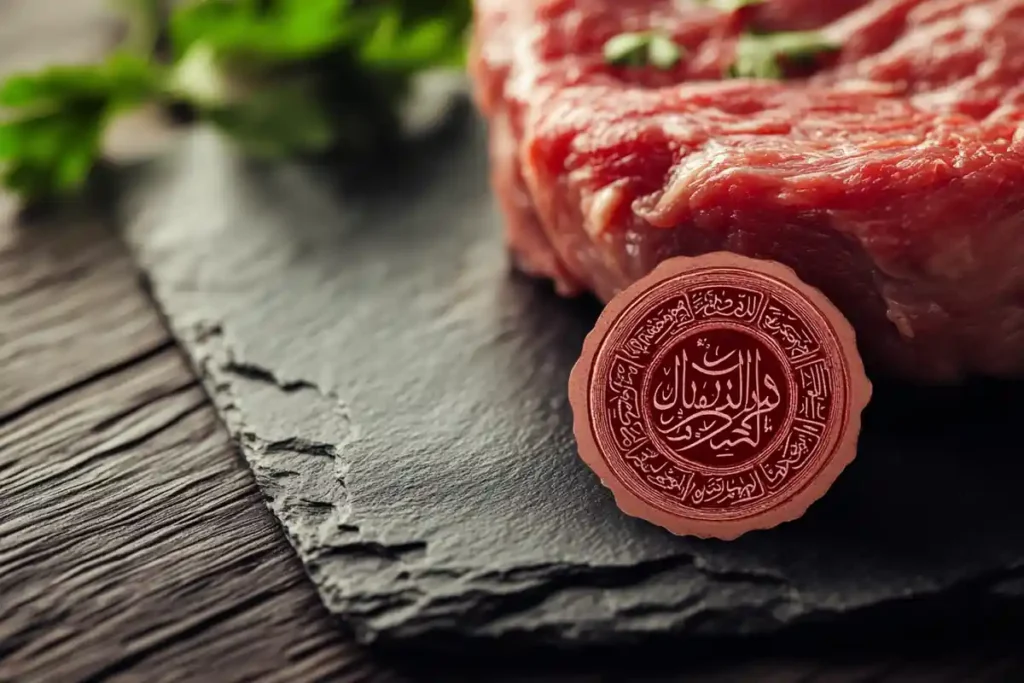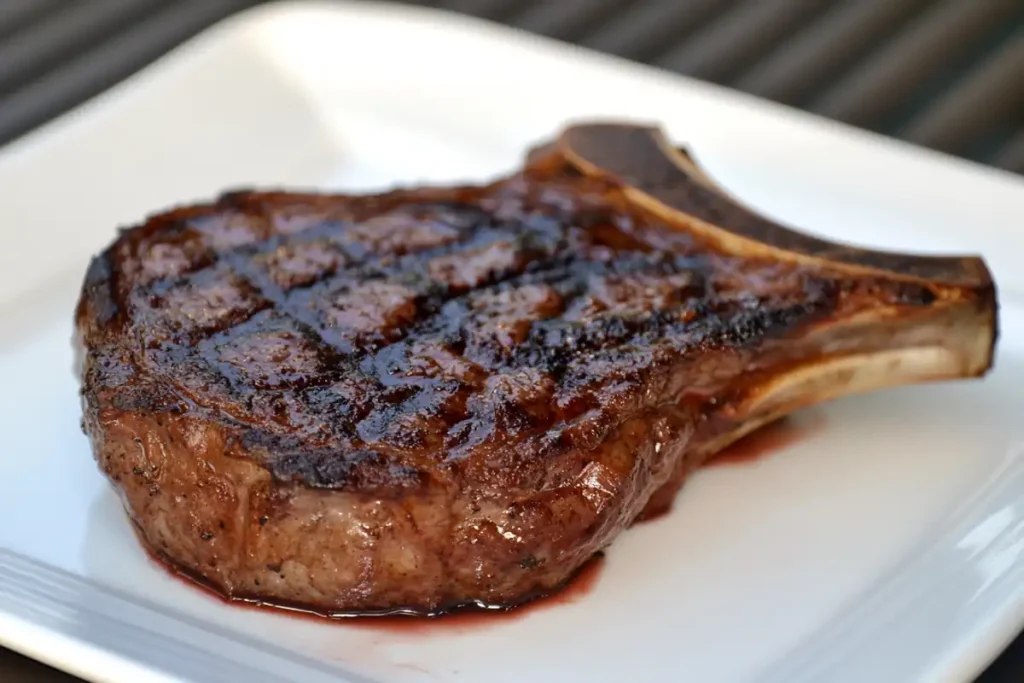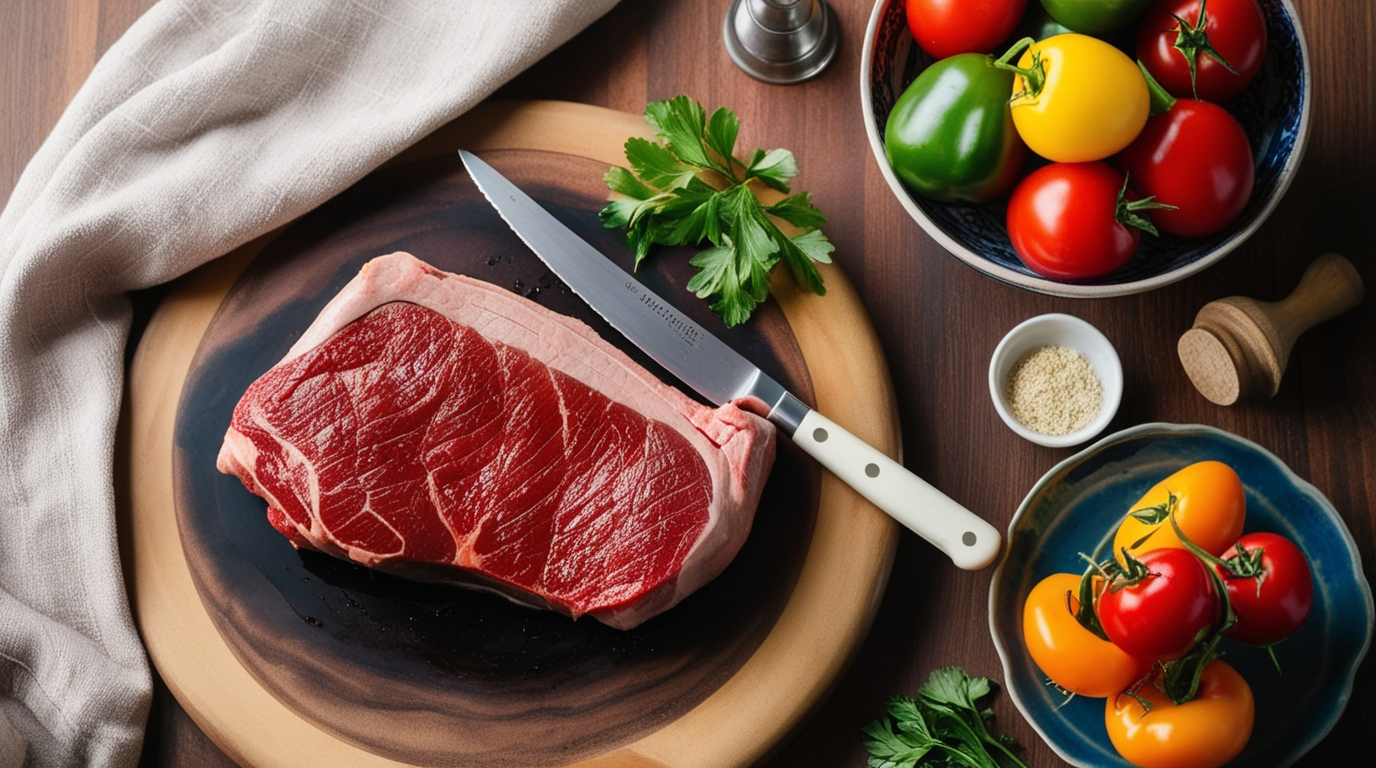Understanding Halal Dietary Laws
Is it halal to eat medium-rare meat? Halal, an Arabic term meaning “permissible,” governs the dietary practices of Muslims worldwide. These guidelines ensure that food consumption adheres to Islamic principles, emphasizing cleanliness, ethical treatment of animals, and proper slaughtering methods.
The Importance of Halal in Islam
Halal is not merely about dietary restrictions but also about maintaining spiritual and physical purity. Consuming halal food is considered an act of obedience to Allah, fostering a sense of community and trust among Muslims. It reflects a commitment to living a life in accordance with Islamic teachings, promoting overall well-being and moral integrity.
Slaughtering Practices in Halal

The halal slaughtering process, known as Zabiha, requires that the animal is healthy at the time of slaughter, the slaughterer is of the Islamic faith, and the name of Allah is invoked during the process. The method ensures minimal suffering and maximal blood drainage, which is crucial for halal compliance. This process not only adheres to religious mandates but also emphasizes humane treatment of animals, aligning with ethical standards that many consumers value.
Is It Halal to Eat Medium-Rare?
When it comes to cooking meat, the primary concern is ensuring that the meat remains halal throughout the preparation process. Is it halal to eat medium-rare? The answer depends on several factors, including the type of meat, the slaughtering process, and adherence to halal guidelines during cooking.
Balancing Halal and Health: Is It Halal to Eat Medium-Rare Meat?
For meat to remain halal when cooked medium-rare, it must first meet all halal criteria at the time of slaughter. This includes proper slaughtering techniques and the absence of prohibited substances. If these conditions are met, the doneness of the meat does not inherently make it non-halal. However, the preparation process must maintain the integrity of the halal standards to ensure that no contamination occurs during cooking.
Temperature and Halal Compliance
Cooking meat to medium-rare involves reaching an internal temperature that may not fully eliminate all pathogens. However, from a halal perspective, the key concern is the slaughtering process rather than the cooking temperature. As long as the meat was halal-certified before cooking, preparing it medium-rare is permissible. Nevertheless, it is advisable to balance religious practices with health considerations to ensure overall well-being.
Health Considerations of Consuming Medium-Rare Meat

While halal compliance focuses on ethical and religious guidelines, health considerations are also important. Eating medium-rare meat can pose risks if the meat is not handled or cooked properly, potentially leading to foodborne illnesses.
Balancing Halal and Health
Muslims are encouraged to maintain their health as part of their religious duties. Therefore, ensuring that medium-rare meat is sourced from reputable halal-certified suppliers and cooked safely is essential to align both halal and health standards. This balance underscores the importance of responsible consumption, where religious adherence does not compromise physical health.
Safe Handling Practices: Is It Halal to Eat Medium-Rare Meat Safely?
- Source from trusted halal suppliers to ensure meat quality.
- Store meat at appropriate temperatures to prevent bacterial growth.
- Use clean utensils and surfaces during preparation to avoid contamination.
- Monitor cooking times and temperatures to achieve the desired doneness without compromising safety.
Implementing these practices helps mitigate health risks while maintaining halal standards, ensuring that the consumption of medium-rare meat is both permissible and safe.
Halal Certification and Its Importance
Halal certification plays a pivotal role in ensuring that meat products comply with Islamic dietary laws. Is it halal to eat medium-rare? The certification process guarantees that the meat has been slaughtered and processed according to specific standards, providing consumers with confidence in the product’s compliance.
The Halal Certification Process: Is It Halal to Eat Medium-Rare Meat
- Inspection of Slaughterhouses: Ensuring that facilities meet cleanliness and hygiene standards.
- Verification of Slaughtering Practices: Confirming that the slaughtering process adheres to Islamic guidelines.
- Monitoring of Supply Chains: Tracking the meat from slaughter to processing to prevent contamination with non-halal substances.
- Regular Audits: Conducting periodic reviews to maintain certification standards.
This rigorous process ensures that halal-certified meat maintains its permissibility, regardless of the cooking method, including medium-rare preparations.
Global Halal Standards: Is it halal to eat medium-rare?
Halal standards may vary across different countries and certification bodies. Understanding these variations is crucial for consumers who seek consistent compliance. Some countries may have stricter guidelines, while others might offer more lenient interpretations. It’s essential to rely on reputable certification authorities to ensure that the meat meets the desired halal criteria.
Cultural and Regional Perspectives on Halal Meat
Cultural and regional practices can influence the perception and preparation of halal meat. Is it halal to eat medium-rare? Cultural preferences for meat doneness may vary, affecting how halal guidelines are implemented in different communities.
Preferences in Different Cultures
In some cultures, medium-rare meat is highly prized for its tenderness and flavor. In others, well-done meat is preferred for safety and texture. These preferences can shape how halal meat is prepared and consumed, reflecting the diverse ways Muslims around the world approach their dietary practices.
Adaptations in Western Countries
In Western countries, where medium-rare meat is a common preference, halal meat producers may adjust their processing methods to cater to these tastes while maintaining halal compliance. This adaptation ensures that Muslim consumers can enjoy their preferred meat preparations without compromising their religious beliefs.
Comparing Halal and Kosher Meat Preparations
Halal and kosher dietary laws share similarities but also have distinct differences. Understanding these can provide a clearer perspective on the permissibility of eating medium-rare meat.
Similarities Between Halal and Kosher
Both halal and kosher practices emphasize humane slaughtering methods, cleanliness, and the avoidance of certain prohibited substances. They require the invocation of a deity’s name during slaughter and prioritize the well-being of the animal.
Key Differences
However, there are notable differences:
- Blessings and Prayers: In halal, the name of Allah is invoked, while in kosher, a specific blessing is recited.
- Method of Slaughter: The specific techniques and requirements for slaughter may vary between halal and kosher practices.
- Forbidden Foods: Kosher laws prohibit the consumption of certain parts of the animal, whereas halal has different prohibitions.
These distinctions are important for consumers to understand, especially when considering the preparation of medium-rare meat under different dietary laws.
Ethical Considerations in Halal Slaughtering
Ethics play a significant role in halal practices, extending beyond religious compliance to encompass broader concerns about animal welfare and environmental impact.
Humane Treatment of Animals
Halal slaughtering emphasizes minimal suffering and stress for the animal. This ethical approach aligns with global movements towards more humane farming and slaughtering practices, appealing to consumers who prioritize animal welfare.
Environmental Sustainability
Sustainable practices in halal meat production are increasingly important. Ensuring that halal-certified meat is sourced from environmentally responsible suppliers can enhance the overall appeal and integrity of halal products.
Consumer Perspectives on Medium-Rare Halal Meat
Understanding consumer perspectives provides valuable insights into the demand and acceptance of medium-rare halal meat.
Demand for Quality and Taste
Many consumers prefer medium-rare meat for its superior taste and texture. Halal-certified suppliers that offer high-quality, medium-rare options can meet this demand while adhering to religious guidelines.
Balancing Tradition and Modern Preferences
Muslims today navigate the balance between traditional dietary laws and modern culinary preferences. Offering medium-rare halal meat allows for this harmony, catering to contemporary tastes without compromising religious principles.
Common Misconceptions About Halal Meat
Addressing misconceptions helps clarify the permissibility and safety of consuming medium-rare halal meat.
Myth: All Halal Meat is Thoroughly Cooked
Reality: Halal guidelines pertain to the slaughtering and preparation of meat, not necessarily its cooking. As long as the meat is halal-certified, it can be prepared to various levels of doneness, including medium-rare.
Myth: Medium-Rare Meat is Unhealthy
Reality: When handled and cooked properly, medium-rare meat can be safe to eat. Ensuring halal certification adds an extra layer of assurance regarding the meat’s quality and preparation standards.
Myth: Halal Slaughtering is Inhumane
Reality: Halal slaughtering emphasizes humane treatment and minimal suffering for animals. It adheres to strict guidelines that prioritize the animal’s well-being, aligning with ethical standards.
Islamic Jurisprudence on Meat Consumption
Delving deeper into Islamic jurisprudence provides a more comprehensive understanding of halal dietary laws and their application to meat consumption.
Quranic Guidelines
The Quran outlines specific guidelines for permissible (halal) and forbidden (haram) foods. A permissible animal must be slaughtered according to Islamic law for the meat to be considered halal.
Schools of Thought
Different Islamic schools of thought may interpret halal guidelines with slight variations. The four major Sunni schools—Hanafi, Maliki, Shafi’i, and Hanbali—generally agree on the basic principles of halal slaughter but may differ on specific rulings. Understanding these nuances is essential for producers and consumers to ensure compliance with their particular sect’s requirements.
Scholarly Opinions on Cooking Temperatures
Islamic scholars have discussed the impact of cooking methods on the halal status of meat. Scholars agree that cooking does not affect the halal status as long as the meat was halal at the time of slaughter and no non-halal ingredients enter during preparation. Therefore, the answer to whether eating medium-rare meat is halal remains affirmative, as long as these conditions hold.
Perspectives from Islamic Scholars
Gaining insights from Islamic scholars can further clarify the permissibility of consuming medium-rare meat.
Majority Opinion
The majority of Islamic scholars agree that the degree of doneness does not affect the halal status of the meat. Their primary concern is the method of slaughter and the avoidance of haram substances. Therefore, eating medium-rare meat is generally permissible within this framework.
Minority Views
Some scholars may express caution regarding undercooked meat due to potential health risks. They emphasize the importance of ensuring that meat is safe to consume, aligning religious duties with personal health responsibilities. However, this perspective does not categorize medium-rare meat as non-halal but rather highlights the need for safe handling and preparation.
Comparative Analysis with Other Religious Dietary Laws
Understanding how halal compares with other religious dietary laws can provide a broader context for its practices and guidelines.
Kosher vs. Halal
As previously mentioned, while both kosher and halal laws emphasize humane slaughter and cleanliness, they have distinct rituals and prohibited items. For instance, kosher laws prohibit mixing meat and dairy, a restriction not present in halal guidelines.
Hindu Dietary Practices
Hinduism generally promotes vegetarianism, especially among certain communities. However, some Hindus do consume meat, adhering to specific guidelines that avoid beef due to the sacred status of cows. Unlike halal, Hindu dietary laws are less prescriptive about the slaughtering process.
Christian Dietary Practices
Most Christian denominations do not have strict dietary laws, although certain groups, like Seventh-day Adventists, advocate for vegetarianism. The concept of halal does not have a direct counterpart in mainstream Christianity.
Detailed Steps to Verify Halal Certification
To verify compliance, several steps can be followed by consumers to ensure that meat is halal-certified.
Checking Certification Labels
Look for recognized halal certification logos on meat packaging. These logos are typically provided by reputable Islamic organizations that inspect and certify meat products.
Verifying the Certifying Body
Ensure that the certification body is credible and widely accepted within the Muslim community. Reputable bodies follow strict auditing processes to maintain their certification standards.
Understanding Certification Standards
Familiarize yourself with the specific standards and requirements of the certification body. This knowledge helps in assessing the quality and compliance of the halal meat products you purchase.
Contacting Suppliers
If in doubt, contact the meat supplier or producer to inquire about their halal certification and the processes they follow to ensure compliance with Islamic dietary laws.
Impact of Consuming Medium-Rare Meat on Religious Observance
Consuming medium-rare meat can have implications for religious observance, particularly in how individuals balance their dietary preferences with their faith.
Personal Satisfaction and Religious Fulfillment
Eating medium-rare meat can increase personal enjoyment and help build a positive connection with food, strengthening the pleasure of eating within Islamic rules.
Community and Social Considerations
In communal settings, serving medium-rare halal meat can cater to diverse preferences, fostering inclusivity and respect for individual tastes while adhering to shared religious principles.
Maintaining Religious Identity
By choosing halal-certified medium-rare meat, people show their commitment to Islamic food laws and keep their religious identity in different social and cultural settings
Testimonials and Real-Life Experiences
Hearing from individuals who navigate halal dietary laws while enjoying medium-rare meat can provide practical insights and relatable experiences.
Personal Stories
Many Muslims share stories of enjoying their favorite medium-rare dishes without affecting their faith. Furthermore, these stories show the importance of trustworthy halal certification and the chance to enjoy different food experiences while following religious rules
Expert Opinions
Nutritionists and religious scholars often collaborate to provide guidance on safely preparing and consuming medium-rare halal meat, ensuring compliance with both health and religious standards.
Further Health Studies on Medium-Rare Meat Consumption
Exploring scientific research on the health implications of consuming medium-rare meat can offer a balanced perspective on the practice.
Benefits of Medium-Rare Meat
Medium-rare meat retains more nutrients and moisture compared to well-done meat. It Its juiciness and rich flavor contribute to a satisfying culinary experience.
Potential Risks
Consuming medium-rare meat carries a higher risk of foodborne illnesses if improper handling or cooking occurs. Moreover, studies emphasize the importance of sourcing high-quality, fresh meat and adhering to safe cooking practices to mitigate these risks.
Balancing Benefits and Risks
Weighing the nutritional benefits against potential health risks is crucial. By sourcing halal-certified meat and following proper cooking techniques, consumers can enjoy medium-rare dishes while minimizing health concerns.
Conclusion
Is it halal to eat medium-rare? Absolutely, as long as the meat adheres to halal slaughtering and preparation standards. By sourcing meat from reputable halal suppliers and following safe cooking practices, Muslims can enjoy medium-rare dishes without compromising their religious beliefs or health. Balancing tradition with modern culinary preferences allows for a diverse and satisfying halal diet, ensuring that dietary practices remain both meaningful and enjoyable.
Frequently Asked Questions (FAQs)
Do halal standards vary in different countries?
- Yes, halal standards can vary across different countries and certification bodies. Some regions may have stricter guidelines than others. It’s important to rely on reputable certification authorities that align with your own understanding and requirements of halal compliance. Research and choose suppliers whose standards you trust.
Are there any health risks associated with eating medium-rare halal meat?
- Yes, eating medium-rare meat can pose a higher risk of foodborne illnesses if improper handling or cooking occurs. Therefore, it’s crucial to source your meat from reputable halal-certified suppliers who adhere to strict hygiene standards. Additionally, proper storage, handling, and cooking techniques are essential to minimize these risks.
How can I ensure that the medium-rare meat I’m buying is truly halal?
- When purchasing meat, look for recognized halal certification logos on the packaging. Moreover, verify that the certifying body is credible and widely accepted within the Muslim community. If you still have doubts, then contact the meat supplier or producer to inquire about their halal certification process and practices. Furthermore, researching the certifying organization’s standards can provide additional assurance of compliance.
Do halal standards vary in different countries?
- Yes, halal standards can vary across different countries and certification bodies. Some regions may have stricter guidelines than others. It’s important to rely on reputable certification authorities that align with your own understanding and requirements of halal compliance. Research and choose suppliers whose standards you trust.

